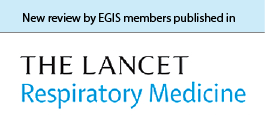EGIS (the European Group on Immunology of Sepsis) is a multidisciplinary group consisting of basic scientists, immunologists, infectious diseases and intensive care medicine specialists with a shared primary research interest in sepsis immunology. Our overarching goal is to develop and foster collaborative research by working in partnership with groups with similar interests, Medical and Scientific Societies, Academia and the Industry. Sepsis was recently redefined by the SEPSIS-3 task force as a life-threatening organ dysfunction caused by a dysregulated host response to infection.
EGIS (the European Group on Immunology of Sepsis) is a multidisciplinary group consisting of basic scientists, immunologists, infectious diseases and intensive care medicine specialists with a shared primary research interest in sepsis immunology. Our overarching goal is to develop and foster collaborative research by working in partnership with groups with similar interests, Medical and Scientific Societies, Academia and the Industry. Sepsis was recently redefined by the SEPSIS-3 task force as a life-threatening organ dysfunction caused by a dysregulated host response to infection.
For clinical operationalization, organ dysfunction is currently defined by an increase in the Sequential [Sepsis-related] Organ Failure Assessment (SOFA) score of 2 points or more. The underlying mechanisms involve pro- and anti-inflammatory responses, along with major modifications in non-immunologic pathways, such as cardiovascular, neuronal, metabolic, etc.
In our view, the immune alterations in sepsis as well as their role in the development and progression of organ dysfunction deserve more attention. EGIS aims to address a number of open questions, including, but not limited to, the following issues:
- Understanding organ-specific immunology
- Post-sepsis immunological status and long-term consequences
- Heterogeneity of immune cell dysfunction
- Immune-stimulatory therapies
- Immunological biomarkers in sepsis
- Immunological risk factors for developing sepsis
These and other issues have to be tackled by basic and translational studies of sepsis immunology.
EGIS defines its major task to provide a platform for fostering the exchange of ideas and tools and to improve access to shared research resources.
This is a continuous endeavour. Do not hesitate to contact us for suggestions and contributions.



